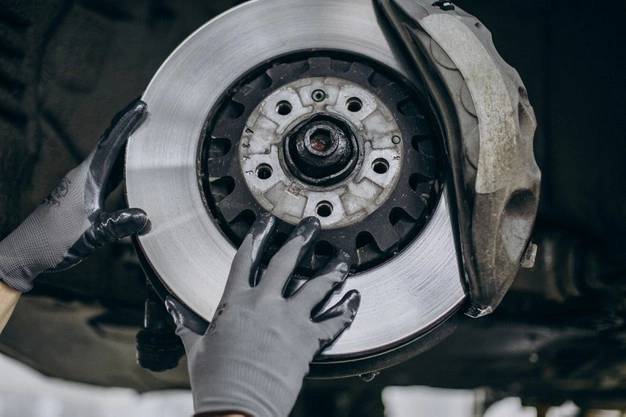January 2022
Anti-lock braking system or ABS is a vital safety feature that has become a common feature in all modern cars. ABS as a feature is often advertised as a system that helps mitigate accidents to a large extent. We explain everything you need to know about ABS, how the system functions, the benefits of the system and the types that you can find in a car you buy today.
What is an Anti-Lock Braking System?
As the name suggests, ABS prevents the wheels from locking when you apply the brakes. Moreover, it also reduces the braking distance and lets you control the vehicle while brakes remain applied. ABS consists of four major components.
Speed sensors: These sensors monitor the speed of the wheels
Valves: Valves in the brake line allow, block and release pressure on the brakes.
Pumps: Pumps are filled with hydraulic fluid that applies pressure to the brake drums or callipers when brakes are applied.
ECU: The electronic control unit (ECU) reacts to the signals from the speed sensors.
How does ABS work?
In standard braking, as you press the brake pedal, the brake pads press against the wheel disc and this stops the rotation of the wheels. With ABS, as you apply the brakes, the speed sensors track the decreasing rotation of the wheels. When the brakes are about to stop rotation, they send a signal to the electric control unit (ECU). The ECU partially releases the brake pads from the wheels through valves and pumps, allowing the wheel to continue rotating. With ABS, the wheels can continue rotating, allowing you to maintain control over the car in a heavy braking situation.
Without ABS, the wheels would stop or lock up immediately after the brakes are applied and the vehicle would skid due to the translational velocity of the wheels. In this case, due to skidding the vehicle would cover a relatively long distance and you won’t be able to control the vehicle since you can’t steer the locked wheels. Moreover, if the left and right wheels of the vehicle are on different traction surfaces, the application of brakes produces different frictional forces on the wheels. This produces torque and causes the vehicle to spin uncontrollably.
Advantages of Anti-Lock Braking System or ABS
- An anti-lock braking system reduces the braking distance as the appropriate pressure is applied to stop the car.
- Since wheels don’t lock up while stopping the vehicle, it avoids uneven tyre wear.
- ABS helps the traction control system.
- Reduce wearing of brake pads and brake discs.
- In case of heavy braking, you can steer the car around obstacles.
Disadvantages of Anti-Lock Braking System or ABS
- Variable braking distances due to different types of surfaces
- Increases the overall cost of the vehicle
- The intricate arrangement of ECU and sensors increases the complexity
- Expensive to maintain
Classification of Anti-Lock Braking System
Depending upon the number of speed sensors and valves, the anti-lock braking system is segregated into three types.
Source: www.spinny.com
Back to All Car Tips, Tricks, Article, Resources
Also read: You Must Know These 10 Car Modification Rules In India
For Complete Information About Authorised Maruti Suzuki Car Dealer in Thane, Contact Navnit Motors, On + 91 22 66066666 Or Email Us At telemarketing@navnitmotors.com
Share This:




